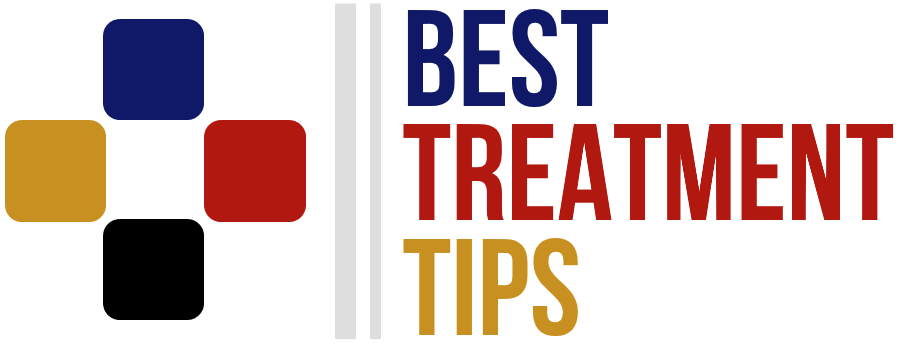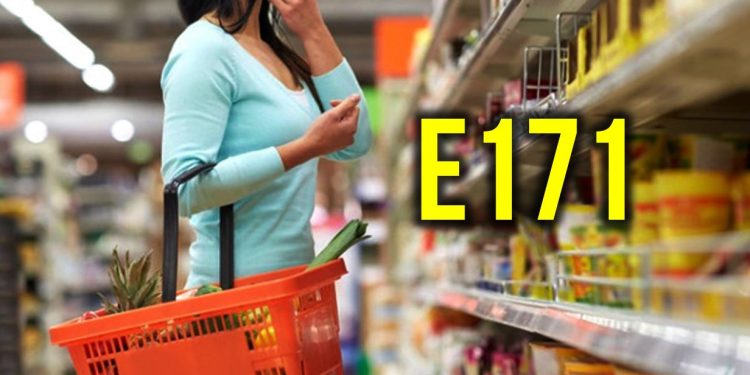European Union (EU) plans ban on Titanium Dioxide (TiO2 or known as E171) in food. Should I stop eating products that contain TiO2 / E171? Is it harmful for health?
European Food Safety Authority (EFSA) has updated its safety assessment of the food additive titanium dioxide (E 171), following a request by the European Commission in March 2020.
The updated evaluation revises the outcome of EFSA’s previous assessment published in 2016, which highlighted the need for more research to fill data gaps.
Prof Maged Younes, Chair of EFSA’s expert Panel on Food Additives and Flavourings (FAF), said: “Taking into account all available scientific studies and data, the Panel concluded that titanium dioxide can no longer be considered safe as a food additive. A critical element in reaching this conclusion is that we could not exclude genotoxicity concerns after consumption of titanium dioxide particles. After oral ingestion, the absorption of titanium dioxide particles is low, however they can accumulate in the body”.
The assessment was conducted following a rigorous methodology and taking into consideration many thousands of studies that have become available since EFSA’s previous assessment in 2016, including new scientific evidence and data on nanoparticles.
Our scientific experts applied for the first time the 2018 EFSA Scientific Committee Guidance on Nanotechnology to the safety assessment of food additives. Titanium dioxide E 171 contains at most 50% of particles in the nano range (i.e. less than 100 nanometres) to which consumers may be exposed.
Genotoxicity Assessment
Genotoxicity refers to the ability of a chemical substance to damage DNA, the genetic material of cells. As genotoxicity may lead to carcinogenic effects, it is essential to assess the potential genotoxic effect of a substance to conclude on its safety.
Prof Matthew Wright, both a member of the FAF Panel and chair of EFSA’s working group on E 171, said: “Although the evidence for general toxic effects was not conclusive, on the basis of the new data and strengthened methods we could not rule out a concern for genotoxicity and consequently we could not establish a safe level for daily intake of the food additive.”
Risk managers at the European Commission and in EU Member States have been informed of EFSA’s conclusions and will consider appropriate action to take to ensure consumers’ protection.
Background
Titanium dioxide (E 171) is authorised as a food additive in the EU according to Annex II of Regulation (EC) No 1333/2008.
The safety of the food additive E 171 was re-evaluated by the EFSA ANS Panel in 2016 in the frame of Regulation (EU) No 257/2010, as part of the re-evaluation program for food additives authorised in the EU before 20 January 2009.
In its 2016 opinion, the ANS Panel recommended new studies be carried out to fill the gaps on possible effects on the reproductive system, which could enable them to set an Acceptable Daily Intake (ADI). Uncertainty around the characterisation of the material used as the food additive (E 171) was also highlighted, in particular with respect to particle size and particle size distribution of titanium dioxide used as E 171.
In 2019, EFSA published a statement on the review of the risk related to the exposure to food additive titanium dioxide (E171) performed by the French Agency for Food, Environment and Occupational Health Safety (ANSES). In its statement, EFSA highlighted that the ANSES opinion reiterated the uncertainties and data gaps previously identified by EFSA and did not present findings that invalidated the Authority’s previous conclusions on the safety of titanium dioxide.
In the same year (2019), the Netherlands Food and Consumer Product Safety Authority (NVWA) also delivered an opinion on possible health effects of food additive titanium dioxide, which highlighted the importance of examining immunotoxicological effects in addition to potential reprotoxicological effects.
What is titanium dioxide?
Titanium dioxide is used a food color (E171) and, as with all food colors, its technological function is to make food more visually appealing, to give color to food that would otherwise be colorless, or to restore the original appearance of food. Titanium dioxide is also present in cosmetics, paints, and medicines.
You can find more information about EFSA’s work in the area of food additives on our website
What foods contain titanium dioxide?
The main food categories contributing to dietary exposure of E171 are fine bakery wares, soups, broths and sauces (for infants, toddlers and adolescents); and soups, broths, sauces, salads and savory based sandwich spreads (for children, adults and the elderly). Processed nuts are also a main contributing food category for adults and the elderly.
What is EFSA saying in its 2021 opinion on the safety of titanium dioxide as a food additive?
After conducting a review of all the relevant available scientific evidence, EFSA concluded that a concern for genotoxicity of TiO2 particles cannot be ruled out. Based on this concern, EFSA’s experts no longer consider titanium dioxide safe when used as a food additive. This means that an Acceptable Daily Intake (ADI) cannot be established for E171.
EFSA’s evaluation is related to the risks of TiO2 used as a food additive, not to other uses.
Should I stop eating products that contain TiO2 / E171?
Although the evidence for general toxic effects was not conclusive, on the basis of the new data and strengthened methods our scientists could not rule out a concern for genotoxicity and consequently they could not establish a safe level for daily intake of TiO2 as a food additive.
In their role as risk managers, the European Commission and Member States will now reflect on EFSA’s scientific advice and decide upon any appropriate regulatory measures or advice for consumers.
EU plans ban on Titanium Dioxide in food
On 6 May 2021, the European Food Safety Authority (“EFSA”) published its updated safety assessment on titanium dioxide as a food additive (E171). EFSA examined new evidence on nano particles and found that there was uncertainty about E171’s ability to accumulate in the body and damage genetic material in cells; i.e. genotoxicity. The agency could not calculate an Acceptable Daily Intake (“ADI”), nor could it determine a safe cut-off value for particle size and distribution. On that basis, it could not confirm the safety of E171 in food. However, since it found no evidence of acute toxicity, an immediate ban is not warranted. France previously initiated a national ban in 2019/2020; following EFSA’s revised opinion, the EU is likely to adopt an EU-wide ban early 2022. In this blog, we briefly review the planned EU-level response and the developments in the Netherlands, Germany and the UK.
European Union
On 18 May 2021, the Commission Working Group on Food Additives discussed EFSA’s revised assessment and its follow-up. According to a report on the meeting by the Dutch delegation, all Member States indicated they could support a ban on E171. An official from the European Commission has confirmed that the Commission foresees a transitional period to give operators time to phase out the use of this additive in food and replace it where needed. However, reportedly, the Commission wishes for this transition period to be as short as possible. The Member States will provide feedback on this as soon as possible. As a reference, France suggested that a transition period of 8 months was applied without any problems with the French (national) E 171 ban in 2019/2020. The Commission expects to table a proposal by the end of July to be voted on at the Plants, Animals, Food and Feed Standing Committee meeting on Toxicology & Novel Food (SCoPAFF Tox & NF) scheduled for 28 September 2021. If adopted, the proposal could enter into application at the beginning of 2022.
Titanium dioxide is also permitted as a coloring agent in other products, such as pharmaceuticals, animal feed, food contact materials and care products. The relevant agencies have been informed and will consider for themselves whether the EFSA opinion has consequences for the use of titanium dioxide in their area. For its part, EFSA also concluded on 16 June 2021 that titanium dioxide can no longer be considered safe to use in animal feed.
The Netherlands
It is currently unlikely that the Netherlands will impose a national prohibition on the use of titanium dioxide as a food additive. In the Dutch minutes for the Commission Working Group on Additives on 8 February 2021, the Netherlands reportedly indicated that European legislation exists for a reason and that national bans are undesirable. The National Institute for Public Health and the Environment (“RIVM”) webpage on E171 confirms that any decision on banning titanium dioxide is to be taken at EU-level.
Germany
Similarly, there are no developments in Germany that suggest it will adopt a national E171 ban.
The Federal Minister for Food and Agriculture and the Federal Institute for Risk Assessment have both issued press releases on titanium dioxide on 6 May 2021. Both of them refer to actions to be taken at EU level. Federal Minister Klöckner stated in her press release that she has asked the Commission to take action. The Federal Institute for Risk Assessment also issued a press release stating that it has reached comparable conclusions to the EFSA. It subsequently updated its Q&A on the additive and indicated it expects action at the EU level.
The emphasis on EU-level action suggests that an initiative at the national level is rather unlikely.
UK
The UK is still considering its stance on the additive, suggesting no immediate national ban is to be expected, but further action cannot be ruled out.
Following the publication of the EFSA opinion, a spokesman for the UK Food Standards Agency (‘’FSA’’) said its independent scientific advisory committees would scrutinize EFSA’s revised assessment alongside existing evidence. This review would inform next steps and future policy.
The FSA also discussed the issue during its board meeting on 26 May 2021, where it concluded it would “put the EFSA opinion through the risk analysis process” and that “devolved administrations have been informed and we are considering implications for Northern Ireland.”
Conclusion
In short, an EU-wide ban on the use of titanium dioxide could be put to a SCoPAFF Tox & NF vote in September 2021 and come into effect by January 2022 with a relatively short transition period of 6 to 9 months. We await the outcome of the UK FSA scrutiny of the EFSA assessment and expect no further national action in the Netherlands and Germany.


